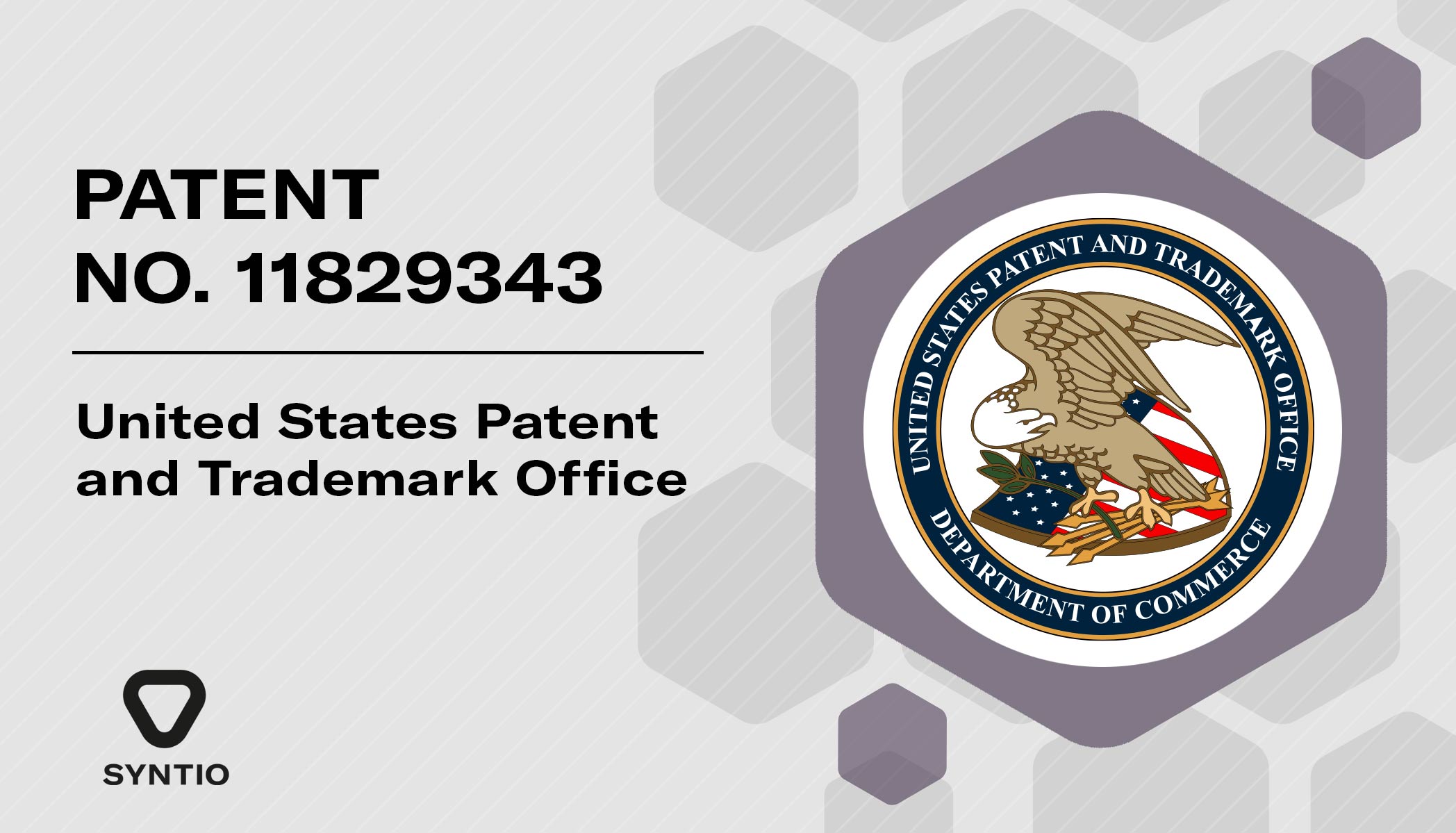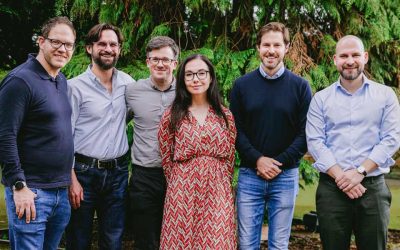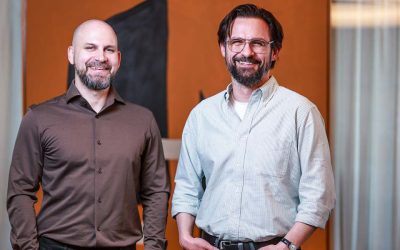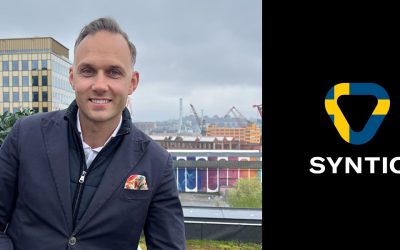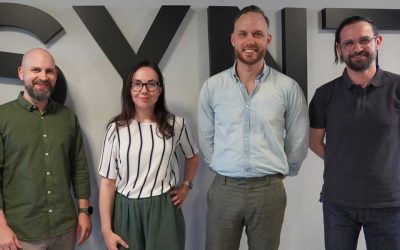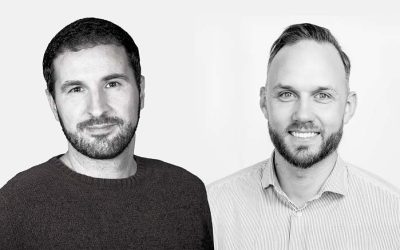The original article – Netokracija
Many of you have already heard of Syntio, and for everyone else, it’s enough to say for starters that this company deals with multi-cloud infrastructures and building data architecture and has been on the Financial Times list of fast-growing European companies for two years in a row.
Among the competition, they pride themselves on having a unique method for data retrieval, which they recently proved in front of the United States Patent and Trademark Office (USPTO), which was the reason for this conversation. But not the only reason… They will soon turn 7 years old, and they can boast significant revenue growth, as well as profit every year since their founding. For example, their revenues grew by 162% from 2020 to 2022 alone.
For a discussion about this rapid growth, news, and plans, our interlocutor was Davorin Cetto, CEO and one of the founders of Syntio.
Multiple Benefits from Patenting

Syntio’s clients are large and medium international/multinational companies, especially those undergoing significant digital transformation, with data at the core of everything. Throughout the years, while developing one of their tools – Dataphos Publisher, Syntio designed a special method that enhances data migration to the cloud.
Syntio recently internationally patented this data retrieval method. The patent of this Croatian company is now numbered 11.829.343 and is signed by Tomislav Domanovac, one of the founders of Syntio, and Ivan Zeko, Senior Data Engineer. The patenting process was not at all simple, comments Davorin:
The patenting process was extensive and very demanding, as evidenced by the fact that it lasted over 2 years. Experts from our team devoted themselves in detail to preparing the patent proposal, and then we, in collaboration with lawyers from the USA, specialized in intellectual property protection, submitted the patent application and participated in the further process.
As Davorin adds, this patent is not just a matter of prestige, but brings them very concrete benefits:
Besides the recognition, the patent provides us with legal protection over our innovations. This allows us to strengthen our position in the market, facilitates negotiations with partners, and influences client confidence. Also, the patent can serve to attract new employees, investors, and clients.
Foundations of Data Management and Analysis are Universal
Besides a successful patent, Syntio has had good years, as we mentioned – continuously growing in the number of experts, but also in revenues, since its founding.
When we founded Syntio in 2017, we had 7 employees, after which we continuously and evenly grew over the years. This has brought us to today’s approximately 100 employees, of whom about 90% are engineers.
This growth is also contributed by the fact that they have a referral rate of 81.57%, highlights Davorin.

Syntio started its business journey with two clients – who are still with them today. The first was an internationally recognized brand in retail, while the second was from the telecommunications sector. Today they cover various sectors…
The number of clients is systematically growing according to the planned dynamics of entering markets, and we are particularly focused on Scandinavia and Northern Europe. Today we collaborate with 15 large international companies covering different sectors such as retail, logistics, pharmaceuticals, telecommunications, finance, tourism, and production of transportation and construction equipment.
The diversity of these sectors does not pose a problem for them because they believe that the foundations of data management and analysis are universal, regardless of the specific industry. Although the source and use of data may vary between sectors, they say that the same basic principles of structuring, analysis, quality assurance, and privacy apply.
Our team understands the verticals in which our clients operate well, as well as the associated regulatory requirements, which is why we can tailor our solutions to each of them. That is why we work closely with business analysts, industry experts, and clients, to truly understand their business goals, data sources, and regulations. Only in this way can we bring results to clients – to make decisions based on data, in real-time.
“In work and growth, partners are very important to us”
Syntio’s main product is the Dataphos platform, which today consists of 3 separate, but complementary components, which together input, prepare, and provide data to users in real-time.
Regarding technologies, Davorin is detailed: the code is predominantly written in the Go programming language and supports schema on read and schema on write systems (SQL and NoSQL).
Dataphos consists of containerized components that communicate asynchronously and are developed as independent units that communicate via message brokers and service endpoints. This allows us to implement in different environments with minimal configuration settings, especially in those supported by Kubernetes (cloud or on-prem).
As a data source, it supports traditional sources such as RDBMS systems, but also SAAS API endpoints and message brokers (various implementations of Apache Kafka, specific public cloud brokers like GCP Pub/Sub, Azure EventHubs, Azure ServiceBus, etc.), and for data storage destination, it offers various cloud storage services (GCP cloud storage, Azure Data Lake, etc.).
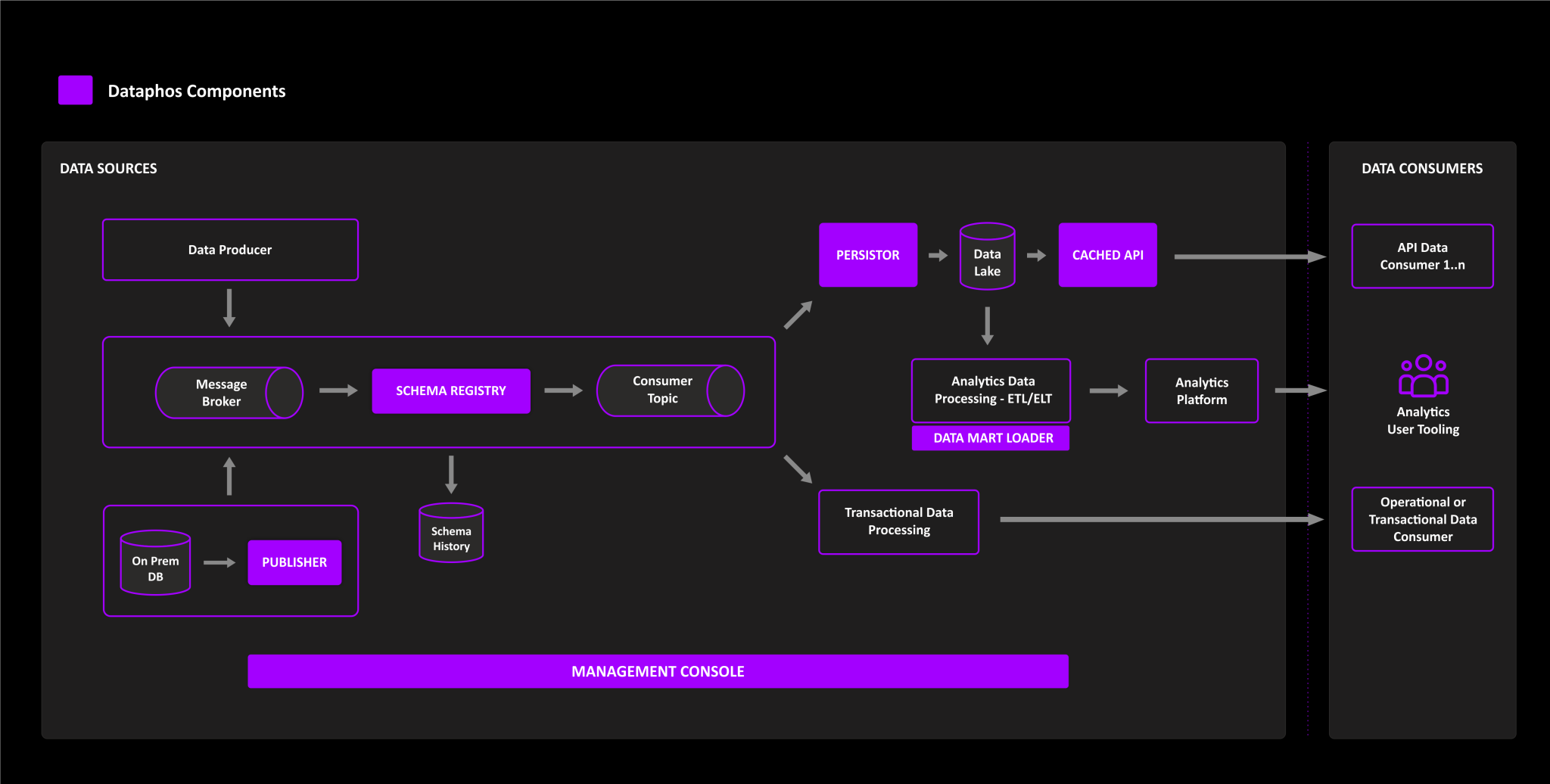
Data pipeline in Dataphos platform
Davorin notes that partners are very important to them in their work and expansion because they provide additional resources, access to new markets, and expertise in certain areas, and these include all the major cloud platforms, such as Microsoft Azure, AWS, and Google Cloud, but also those that are on-prem, when necessary.
In addition to the Dataphos product package, Davorin also mentions the current project on energy sustainability, where cooperation is also key:
As part of the European Green Deal project aimed at achieving a carbon-neutral continent by 2050, a year ago, the development of our platform for energy communities (My Energy Community) began. The project is supported by funds from the Norwegian Financial Mechanism and developed in collaboration with Grid ONE.
Competition Clash
But the most important question remains: what makes Syntio better than its competition?
Davorin explains that Dataphos is the fruit of experience, that it emerged as a solution to some of the most common, similar problems they encountered with clients in various industries, and alternatives were either not available or unsatisfactory.
In 2023, from that experience, three products branched out.
For instance, Dataphos Publisher serves as a cheaper, more stable, and faster alternative to CDC (Change Data Capture) tools and the concept of periodic data replication. Compared to other Schema Registries, the Dataphos Schema Registry offers many more connectors and performs active validation to ensure consistency and promote proper updating of message structures to protect the data user. Also, our Schema Registry is not specifically developed for a single technology, i.e., it is independent of the broker.
Then there’s Dataphos Persistor, which helps build a data storage location that can later be used for analysis or ML (machine learning). It also has a resend option, where stored indexed data can be resent for reprocessing if the data is no longer available at the source or if there is a desire not to burden the data source.
What lies ahead for them?
The patent, all the expertise gained, and the reputation as a reliable partner allow Davorin and his team to continue having ambitious plans for growth and business development:
Our vision has always been to become one of the most prestigious and innovative data engineering companies – and that hasn’t changed. We are currently most present in the Nordic market (primarily Sweden), but in the future, we plan to increase our presence in other European markets and, of course, continue to focus on clients, innovation, and growth.
